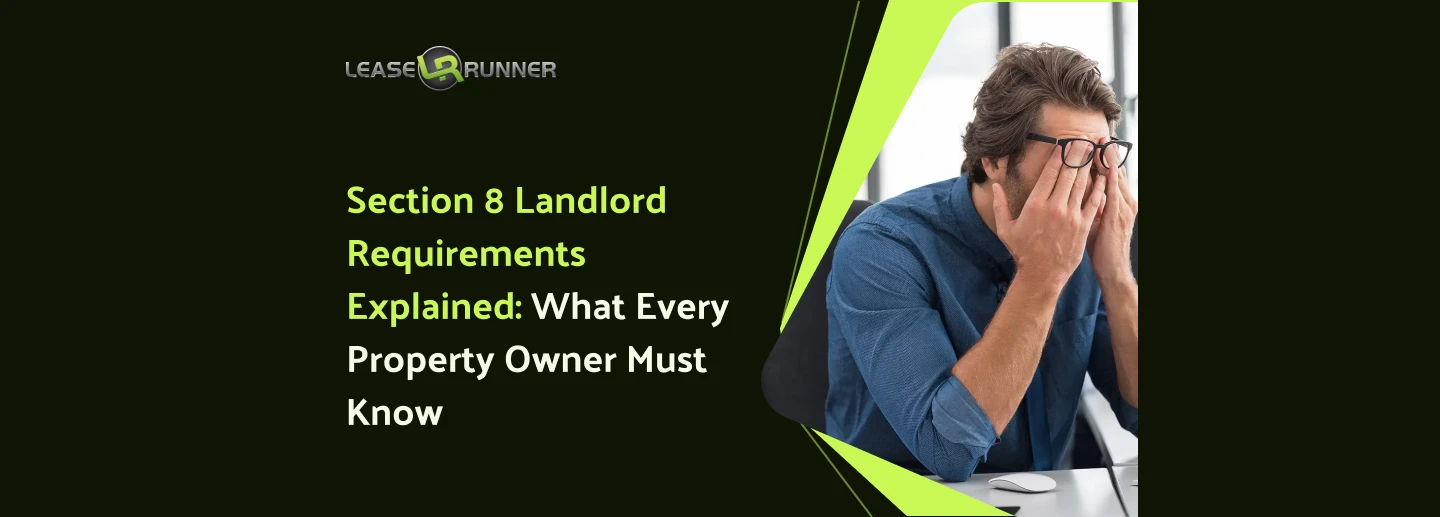
It is important that tenants learn how to pass a background check on an apartment. It could be intimidating as your credit score, rental history, and even trivial past errors can influence whether or not your application will be approved.
For instance, certain tenants are tormented by lease denial due to minor mistakes in their credit report, such as a clerical mistake that reflects as outstanding rent. Lawsuits, like Santiago vs. Equifax, exist to highlight just how serious these background check mistakes are, unfairly denying people a housing opportunity.
Don't risk it. With proper preparation and some smart tricks, your application will be dazzling. Let's see how to pass a background check for an apartment successfully.
What is an Apartment Background Check?
An apartment background check is a step that landlords use to review your history before you rent. This process lets a landlord decide if you are a good fit for the building. They look for red flags in your past. The most common items include your credit score, credit report, rental history, and past evictions.
When you apply for an apartment, you fill out a form. You give your Social Security or ID number and agree to a background check. Understanding the process helps you avoid surprises, fix issues early, and get one step closer to your new home.
What Landlords Look for in a Rental Background Check (And How to Prepare)
When landlords let you live in their property, they're trusting you with something valuable. To protect their investment and keep their building safe, they want to avoid late payments, damage, or legal trouble.
That's why they use a rental background check to find reliable tenants and avoid problems down the road.
From the landlord's viewpoint, here's what they check and why:
- Credit history: Landlords look at your credit score to see if you pay bills on time. Services like RentCafe might use a major credit bureau to pull your record. This answers, what credit bureau does RentCafe use? Typically, it's Experian, Equifax, or TransUnion.
- Rental history: They want to know, can apartments see your rental history? Yes. Records show missed payments, broken leases, or evictions. This helps answer, why do apartments do background checks?
- Criminal record: A landlord checks for past offenses to protect others living there.
- Employment and income: Proof of steady work and good income can make a difference. If you are unsure about how long RentCafe takes to process the application? The answer is a few days, after they check all of these details.
- References: Calls to employers or past landlords confirm if you were reliable or caused trouble.
Not every place screens the same way, and what apartments don't do background checks are rare but can be found in private rentals.
For renters, here's how to prepare before applying:
- Check your own credit report for errors, and fix any mistakes you find.
- Review your rental history and be ready to explain any old issues or late rent.
- Gather recent pay stubs and a job letter as proof of income.
- Collect strong references from former landlords or employers.
- Write a clear explanation for anything that might worry a landlord, like an old eviction or legal case.
- Know the cost. The fees are usually $30–$100, so plan ahead.
By preparing each step, you increase your chances of passing the screening and finding a good home—even if your past record isn't perfect.
What Does an Apartment Background Check Include?

A background check on an apartment is a close review of your financial and rent history.
- Credit Report: Landlords review your credit score to look at fiscal responsibility. They'll review for delinquent payments, large debt, and credit status in general. A low score doesn't necessarily mean denial, but it might make it more difficult to qualify.
- Rental History: Evictions, late rent payments, and landlord disputes can damage your application. Even former addresses are screened by some landlords to determine how long you have been at previous rentals.
- Criminal Background: Not all landlords are the same when it comes to criminal records. Some landlords are open, but some others have a strict policy, particularly for violent or property crime.
- Employment & Income Verification: It is preferred that you give notice that you earn 2.5 to 3 times the rent. They may ask for pay stubs, bank statements, or employment verification to verify stability.
- Personal or Professional References: Your old landlords or employers are typically asked by landlords for references. They are hired to verify you are reliable, conduct yourself responsibly as a tenant, and have a good character at your previous rentals or work locations.
- Eviction Records: Your record check will show whether you have ever been legally evicted from a rented premises. A past eviction may be a concern to landlords regarding your future tenancy as well.
- Identity Verification: Your landlord will verify your identity by comparing the name and social security or ID number you have given them with valid documents. This identifies your identity and prevents fraud.
5-Step Guide to Passing a Background Check for an Apartment
Want to pass your apartment background check with ease? Follow these steps to improve your chances and make sure landlords see you as a trustworthy tenant.
Step 1: Check Your Own Background Report Before Applying
Before a landlord checks your background, do it yourself. You can request a free credit report from sites like AnnualCreditReport.com and check your rental history through tenant screening services.
- Look for errors: Ensure your credit report is up-to-date and free from inaccuracies or outdated information.
- Identify red flags: If you have past issues like an eviction or missed bill payment, be prepared to explain them. A well-written letter or a conversation with the landlord can sometimes override these concerns.
Step 2: Improve Your Credit Score to Increase Approval Chances
A good credit history is an indication that you're a reliable tenant. However, landlords also consider other factors when evaluating your ability to pay rent on time, such as the 3x rent-to-income ratio. This means your monthly income should be at least three times the amount of rent you're applying for. If your credit score is lower than you'd like or you’re concerned about meeting income requirements, consider these actions to improve your financial profile:
- Pay debts: Pay off any bills that are past due, particularly those in collections.
- Make timely payments: Consistent, on-time payments increase your credit score over time.
- Keep credit card balances low: Avoid high credit card utilization, as it can negatively impact your score.
- Limit hard inquiries: Multiple credit applications can flag you as a financial risk.
- Income and rent-to-income ratio: Ensure that your monthly income is sufficient to cover your rent. Many landlords look for applicants who earn at least three times the rent to ensure you can comfortably pay without financial strain.
Step 3: Fix Any Red Flags in Your Rental or Criminal History
Rather than avoiding past mistakes, be proactive and address them before applying. Many landlords believe criminal history is more important than credit history when it comes to tenant screening. Being upfront about any issues will show responsibility and maturity to landlords.
- Criminal record: If you have a criminal record, check if it can be sealed or expunged under your state laws. If it can't be expunged, write a letter to the landlord explaining the situation and the steps you've taken to turn your life around (e.g., attending rehabilitation programs, staying employed). Keep in mind that the HUD criminal background check rules apply, so make sure you’re familiar with regulations around how criminal history is considered during the application process.
- Address Past Issues:
- If you've been evicted or had rental troubles, resolve them before applying. Contact previous landlords to clear any debts, and ask for a statement confirming the debt is settled.
- For criminal convictions or past offenses, write a letter explaining the situation, the steps you've taken to improve, and how you're committed to being a reliable tenant.
Step 4: Prepare Supporting Documents and References
Being prepared with the right documents can help speed up the application process and show the landlord you're serious.
- Proof of income: Gather recent pay stubs, bank statements, or tax returns to demonstrate your ability to afford rent.
- Employment verification: Be ready to provide information about your current employer, how long you've been employed, and your job stability.
- Rental history: Have contact information for previous landlords ready to provide references.
- References: Obtain positive recommendations from previous landlords, employers, or colleagues who can vouch for your reliability and character.
Step 5: Be Transparent and Take Responsibility
Don't attempt to cover up past issues—honesty is essential. Most landlords will find out about any issues through background checks, so it's best to be transparent.
- Be transparent: Don’t hide past issues. Landlords will find them through background checks, so it's best to be open.
- Own your mistakes: If you have a past eviction or criminal record, be prepared to discuss it and provide documentation of the steps you’ve taken to resolve the situation (e.g., paying off debts or attending rehabilitation programs).
- Show responsibility: Demonstrating that you've learned from past mistakes and taken steps to improve builds trust with the landlord and boosts your approval chances.
- Understand the application process: Familiarize yourself with the specific requirements of the apartment complex or landlord.
- Be prepared for a property visit: Landlords may visit your current residence to assess how you maintain your living space. Keep your home clean and presentable to show you're a responsible tenant who will care for the new property.
- Consider a co-signer or guarantor: If you're concerned about your credit or income, it might be helpful to consider a guarantor, such as a family member or friend with a stronger financial profile, to support your application.
What If You Have a Bad Background Check? How to Still Get Approved?

A "negative background check" is a report that shows information landlords typically consider high risk. This may include:
- Low credit rating or poor credit history (e.g., numerous late payments, excessive debt burden, collections).
- Prior evictions or serious rental history problems (e.g., property damage, violation of lease terms).
- Active criminal history, particularly felony convictions or convictions for property damage or violence.
- Insufficient or unverifiable income to qualify to pay the rent.
If your background check returns adverse information, it's not the end of your apartment hunt. There are still things you can do to strengthen your rental application and demonstrate yourself to be reliable. With a history of issues, you can still obtain a lease in most instances.
Landlord and tenant-friendly services such as LeaseRunner will help you project a better image of your lease readiness. If you are already having a bad background check, do not worry because you can still hope to gain a chance of securing an apartment through these avenues below:
1. Be Honest and Upfront
Always be honest with landlords about any prior issues. If you have a past eviction or late payments, explain what happened and what you've done since to prevent it from happening again. This honesty can build trust and show you are committed to being a better renter.
2. Offer Solutions
Bring solutions to the table to ease a landlord's concerns. You might offer a bigger deposit, pay several months of rent upfront, or find a cosigner with a strong credit report. Providing positive references from former landlords or your employer can also boost your application.
3. Address Errors or Outdated Information
Review your credit report and rental history before you apply. If you spot mistakes or outdated details, fix them with the credit bureau or background check company. Bring proof of corrections to your landlord. Most landlords are understanding when you can show real improvements.
4. Highlight Rehabilitation or Positive Changes
If you've made life changes, like getting a steady job or improving your finances—make sure to highlight those. Providing recent pay stubs, proof of income, or a bank statement can show your ability to pay on time. Any steps taken to improve responsibility should be shared.
5. Target the Right Landlords
Some landlords, like small property owners, have more flexible standards than big rental companies. Focus your search on these independent landlords, as they may be more willing to work with applicants who have a lower credit score or a past eviction , especially if you have positive references.
6. Persistence Pays Off
Don't lose heart if your first few applications aren't accepted. Keep improving your documents and collecting good references. Your rental history will get stronger every time you work towards your goal. Stay persistent, being proactive and positive helps you stand out.
By applying these tips and using support from services like LeaseRunner, renters with a rough background can still find the right apartment. Keep an open attitude, stay prepared, and never stop trying.
Note: Can You Rent an Apartment with Bad Credit or an Eviction?
Yes, but it might take more effort. Landlords rely on credit scores and rental history to gauge risk, and while bad credit or an eviction won’t automatically disqualify you, they do make approval harder since it can signify that you are a possible delinquent tenant.
What Apartments Don’t Require Background Checks?
Many apartments will check your background before you rent. Still, some landlords may choose to skip this step. Private property owners are a common example. These landlords, unlike big apartment companies, can be more flexible and may not ask for a full check.
If you are looking for apartments with no strict screening, start with online sites such as Craigslist or Facebook Marketplace. Local community rental groups are also helpful. These places often list private rentals where the owner makes quick, simple decisions.
Some buildings offer “no credit check” apartments. These are often aimed at people with a low credit score or past rental issues. To rent here, you might need to pay a bigger deposit or show that you have steady income. The process can move faster because there is less screening.
If you need a place for a short time, some options do not need a background check at all. Extended-stay hotels let you pay by the week or month. Month-to-month rentals are also available. These give you housing while you rebuild your rental history. Both choices work well if you want to avoid background checks and still need flexibility.
Common Questions About Apartment Background Checks
Background checks can feel like a maze, but understanding how they work makes the process smoother.
How Long Does a Rental Background Check Take?
Most background checks take 24-72 hours, but the exact timeline depends on a few factors:
- Online applications: Many property management companies use instant screening services, providing results within minutes.
- Manual verification: If a landlord personally calls your employer or previous landlord, it can take a few extra days.
- Weekends & holidays: Background checks can get delayed if offices are closed.
What Credit Bureau Do Apartments Use?
Most landlords rely on one or more of the three major credit bureaus when screening tenants. Experian is commonly used for tenant credit reports, Equifax helps assess overall financial history, and TransUnion’s SmartMove is specifically designed for tenant screenings, making it a popular choice for property managers.
Many landlords also use third-party screening services, like LeaseRunner, which pull credit details from these bureaus to provide a comprehensive tenant background check.
Final Thoughts
How to pass a background check for an apartment is something every renter faces at some point. One eviction, a negative credit history, or errors on your credit report should not deter you. Every mistake is a learning experience.
Start off by reviewing your records and clearing up mistakes prior to applying. Be truthful with prospective landlords regarding your rental history. This develops trust. Provide more down payment if you can. If you can, introduce a cosigner and solid references from previous landlords or employers.
Provide clean proof of income with your pay stubs. In case you get rejected, request criticism so you can improve on the next try. Search for landlords who will accept applicants who have less-than-stellar records. Be upbeat, keep on applying, and speak to numerous prospects.
With time, effort, and honesty, you can clear the background check for the apartment and get the appropriate place to call home. If you still question about this issue, feel free to visit our LeaseRunner blog for more information.
FAQs
Q1: How Far Do Rental Background Checks Go?
Most rental background checks go back seven to ten years, but this can vary based on state laws (including Fair Housing Act) and the type of screening.
Q2: Does LeaseRunner Report to Credit Bureaus?
No, LeaseRunner itself does not report rent payments to credit bureaus. However, it provides a platform where landlords and property managers can access tenant credit reports sourced from Experian to assess applicants' financial histories.
Q3: How Much Is a Background Check for an Apartment?
The cost of a rental background check depends on the landlord and the screening service they use. On average, application fees range from $30 to $75 per adult applicant.
Q4: Why Do Apartments Do Background Checks?
Landlords run background checks to reduce risk. A background check helps them confirm financial stability, verify employment, and look for criminal records.


Get your Clear Tenant Profile in Minutes
Credit, rental history, and background—everything you need to pass the check with confidence







